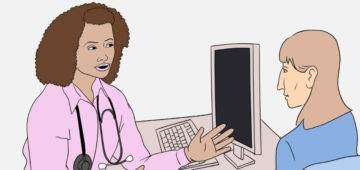RSPH warns that the UK public is under-sleeping by an average of almost an hour every night – which amounts to losing an entire night’s sleep over the course of a week. As a result, experts are calling for the introduction of national sleep guidance time – ‘a slumber number’ – to help inform the public about the critical importance of sleep to health and wellbeing.
The report, ‘Waking up to the health benefits of sleep’, co-authored by renowned sleep expert Professor Colin Espie, calls on the government, employers, health care professionals and individuals to do more to promote good quality sleep to protect and promote the public’s health and wellbeing.
RSPH is also calling for:
- The UK Government to publish a national sleep strategy
- Routine screening for insomnia and training for health and social care professionals
- Cognitive Behavioural Therapy (CBT) to be made more available as first line therapy for sleep disorders.
RSPH polling has also shown that the public feel getting enough sleep is the second most important activity for optimising their health and wellbeing, ahead of health behaviours such as eating five fruit and vegetables a day, undertaking enough physical activity, and sticking to recommended alcohol guidelines. In fact, sleep was ranked second only behind not smoking. RSPH’s poll of 2,000 UK adults* also reveals:
- Average sleep time is 6.8 hours, below the average 7.7 hours people feel they need
- More than half (54%) have felt stressed as a result of poor sleep
- More than a third (36%) have eaten unhealthy food as a result of poor sleep
- Almost four in 10 (37%) have fallen asleep on public transport.
Shirley Cramer CBE, Chief Executive of RSPH, said: “We do need to wake up to the benefits of sleep - there is a wealth of evidence that lack of sleep is damaging the public’s health. Poor sleep and sleep disorders impact on our ability to lead a healthy lifestyle and are associated with a range of diseases such as cancer, diabetes, heart attack and depression.
“Our research shows there is a yawning gap in how much sleep the public are getting compared to how much they need – this could be as much as one night’s worth of sleep every week. Efforts to combat this shortfall could be as critical to optimising our health and wellbeing as maintaining an active lifestyle or having a healthy diet. A good starting point would be to ensure sleep has parity alongside other areas of health and develop a national sleep strategy which sets out guidance for the public and highlights what more schools, employers, and healthcare professionals can do to ensure the nation sleeps better at night.”
Professor Colin Espie, Professor of Sleep Medicine at the University of Oxford, said: “The importance of sleep for individual and societal benefit has been almost completely neglected in both policy and practice. Insomnia, the most common expression of mental disease is like a Cinderella disorder – seldom receiving proper attention, despite the fact that it is the most treatable pre-cursor to depression.
“I’m delighted to be associated with this report on the nation’s sleep, and I look forward to supporting its recommendations. There is a great opportunity to put contemporary sleep research findings to work for the public good, and I’m sure many would agree on the importance of adding sleep to the nation’s health agenda.”
*Populus interviewed a random sample of 2,010 UK adults aged 18+ online between 11 and 13 March 2016. Surveys were conducted across the country and the results have been weighted to the profile of all adults. Populus is a founder member of the British Polling Council and abides by its rules.



